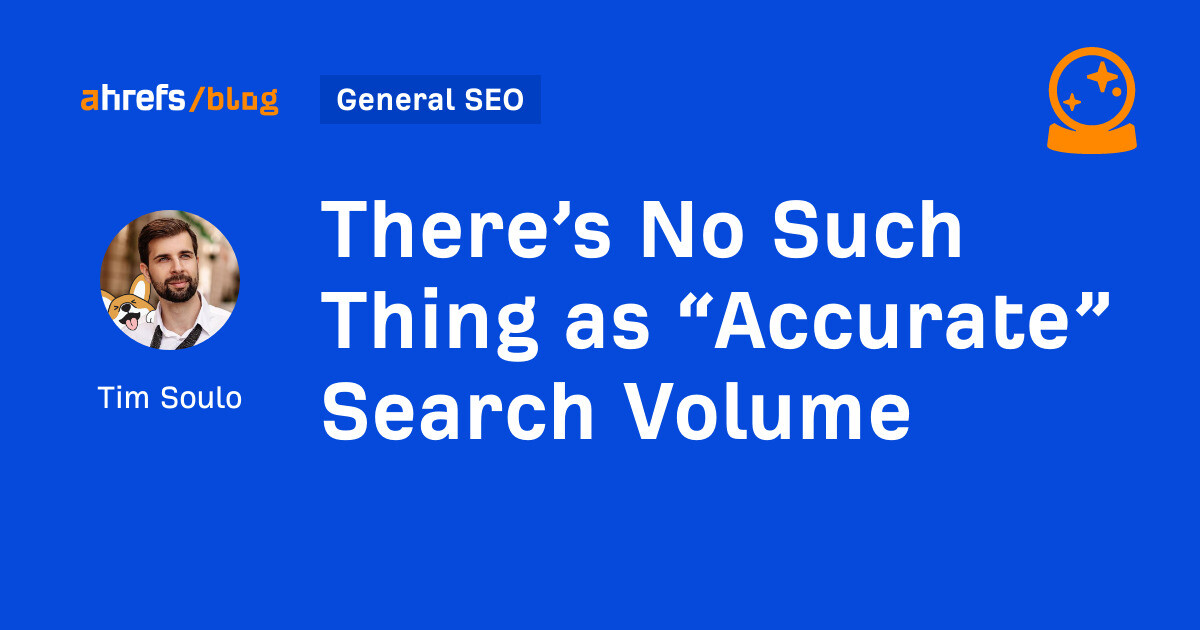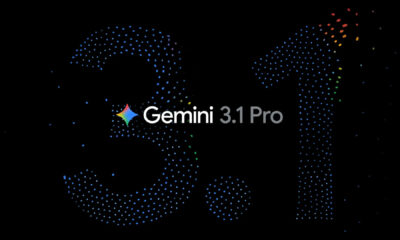SEO
There’s No Such Thing as “Accurate” Search Volume

Which was not the first time I saw us being criticized for the accuracy of our search volume metric.
But here’s the kicker…
There’s NO SUCH THING as an accurate search volume:
- The volumes in Google Keyword Planner aren’t accurate.
- The “Impressions” in GSC aren’t accurate either.
- And the metric itself is just an average of the past data.
I already published a pretty detailed article about the search volume metric back in 2021. But I don’t think too many people have read it.
“Everything that needs to be said has already been said. But since no one was listening, everything must be said again.”
So let me address this topic from a whole new angle.
First of all, what do SEOs even mean when they ask for search volumes to be “accurate?”
Well, the less experienced folks just want the metrics in third-party tools to match what they see in Google Keyword Planner (GKP).
But the more experienced ones already know all Google Keyword Planner’s Dirty Secrets:
- The numbers are rounded annual averages.
- Those averages are then assigned to “volume buckets.”
- Keywords with similar meaning are often grouped together and their search volume summed up.
In other words, the search volume numbers that you see in GKP are very imprecise. And once SEOs learn that, they no longer use GKP as their baseline of accuracy.
They use GSC.
Ok. So the numbers in GKP are rounded and bucketed and clustered together and all that. But Google Search Console (GSC) shows you the actual impressions for a given keyword, right?
Well, did you know that a simple rank-tracking tool can easily pollute your GSC impressions?
Think of how many different “robots” might be scraping the search results for a given keyword, and therefore giving you a fairly inaccurate impression of its real (human-driven) search volume.
And besides, in order to see the actual monthly search volume your page has to be ranking at the top 10 for thirty days straight. And it should rank nationwide, just in case the search results might differ based on the location.
On top of that, I’m sure GSC is no different from any other analytics tool in the sense that it might have certain discrepancies in “counting” those impressions. I mean, go compare the “Clicks” you see reported by GSC with your server log files. I bet the numbers won’t match.
How much time do you think would pass between you selecting a certain keyword to rank for and actually having your page rank at the top of Google for it?
According to our old research, it could be anywhere from two months to a year for a newly published page to get to the top. Don’t you think the monthly search volume of a given keyword will change by then?
That’s actually the exact reason why we’ve added search volume forecasting to our Keywords Explorer tool. It uses past data to project what would likely happen to search volume in the next 12 months:
Is it accurate? No.
But does it help to streamline your keyword research and make better decisions? Absolutely.
Let’s do a thought experiment and imagine that there was an SEO tool which would give you a highly precise search volume for any keyword. What would you use it for? Would you be able to accurately predict your search traffic from that keyword?
No!
You can’t know for sure at which position your page will end up ranking. Today it’s #3, tomorrow it’s #5, the day after is #1. Rankings are volatile and you rarely retain a given position for a long enough period of time.
And even if you did: you can’t get precise data on the click-through rate (CTR) of each position in Google. Each SERP is unique, and Google keeps rolling out more and more SERP features that steal clicks away. So even if you knew precisely the search volume of a keyword and the exact position where your page would sit… you still would not be able to calculate the accurate amount of search traffic that you’ll get.
And finally…
Pages don’t rank for a single keyword! Seven years ago we published a study showing that a typical page that ranks at the top of Google for some keyword would actually rank for about a thousand more related keywords.
So what’s the point of trying to gauge your clicks from a single keyword, when you’ll end up ranking for a thousand of them all at the same time?
And the takeaway from all this is…
Here at Ahrefs we spend a tremendous amount of time, effort and resources to make sure our keyword database is in good shape, both in terms of its coverage of existing search queries, and the SEO metrics we give you for each of these keywords.
None of our SEO metrics are “accurate” though. Not search volume, nor keyword difficulty, nor traffic potential, you name it.
But none of them can be.
They’re designed to be “directionally accurate.” They give you an overall idea of the search demand of a given keyword and if it’s a lot higher (or lower) compared to some other keywords which you are considering.
You can’t use those metrics for doing any precise calculations.
But hundreds of thousands of SEO professionals around the world are using these exact metrics to guide their SEO strategies and they get precisely the results that they expect to get.









![How AEO Will Impact Your Business's Google Visibility in 2026 Why Your Small Business’s Google Visibility in 2026 Depends on AEO [Webinar]](https://articles.entireweb.com/wp-content/uploads/2026/01/How-AEO-Will-Impact-Your-Businesss-Google-Visibility-in-2026-400x240.png)
![How AEO Will Impact Your Business's Google Visibility in 2026 Why Your Small Business’s Google Visibility in 2026 Depends on AEO [Webinar]](https://articles.entireweb.com/wp-content/uploads/2026/01/How-AEO-Will-Impact-Your-Businesss-Google-Visibility-in-2026-80x80.png)







